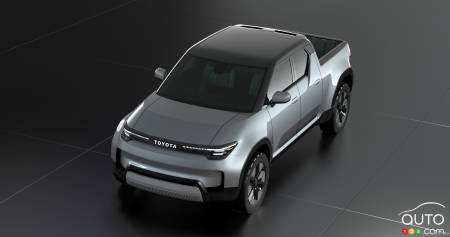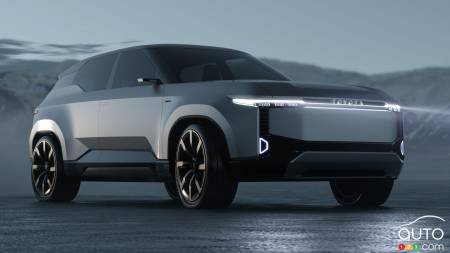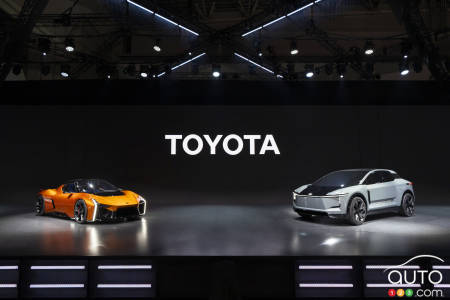It's impossible not to notice: Toyota has been in full catch-up mode regarding electric vehicles, and the exclamation point on its transformation from EV-sceptics to EV-enthusiasts came at the Tokyo Motor Show this week. Certainly, the Japanese giant has the means to compete in this rapidly growing sector as the automotive world undergoes a significant transformation.
But history has shown us that even giants can be overthrown in times of turmoil if they hesitate to react. Kodak, IBM and Nokia, once pioneers in their fields, faltered during technological shifts. Toyota is determined not to follow the same path in the electric vehicle sector.
Before stepping down as Toyota's head, Akio Toyoda, a known BEV-skeptic, prioritized hybrid technologies. That all changed with the changing of the guard at the top last year. The past is the past. But it's clear that Toyota lags behind its competitors. While manufacturers like Tesla, BMW, and Volkswagen have taken the lead, Toyota is far behind. Last year, Toyota sold just over 25,000 electric vehicles worldwide, an insignificant number for a corporation of its magnitude.
However, the tide may be turning as the Japanese automaker plans to increase production to 150,000 vehicles this year.

A litany of concepts
At present, the bZ4X is the lone all-electric model available from Toyota. However, three new concepts (as well as the Land Cruiser Se prototype) were on its stand in Tokyo this week. And all are expected to lead to production models.
While the most eye-catching of these was undoubtedly the FT-Se sports concept, most talk since the reveals has centered around the EPU, an electric compact truck that takes aim at Ford's Maverick – with the crucial difference that it’s all-electric.
Strangely, Toyota has not confirmed the EPU will lead to a production truck, even less that it will be sold in North America. But looking at it from almost any angle, Toyota’s best route to catching up its lost time in the EV sector might just be to introduce a fully electric compact pickup, a segment that sits empty right now.

There are batteries, and then there are batteries
Toyota's strategy to regain a foothold in the race toward electrification also test heavily on technological innovation. The development of solid-state battery technology is currently a focal point. While still in the experimental stage, this technology could drastically transform the sector. It has the potential to significantly reduce battery cost, weight and size, while providing a range of over 1,000 km and reducing 10-to-80-percent charging time to just ten minutes.
Mastering this technology ahead of competitors could provide a significant competitive advantage for Toyota. The company's communication strategy reflects its ambition and determination, continuously highlighting its progress and promising to be closer to commercializing this ground-breaking technology.
To help with furthering technological advancements, Toyota is considering collaborations with other market players, such as Suzuki, to accelerate development. Because, yes, the clock is ticking; Toyota is not alone in pursuing solid-state battery technologies; other manufacturers are also working on similar breakthroughs.


